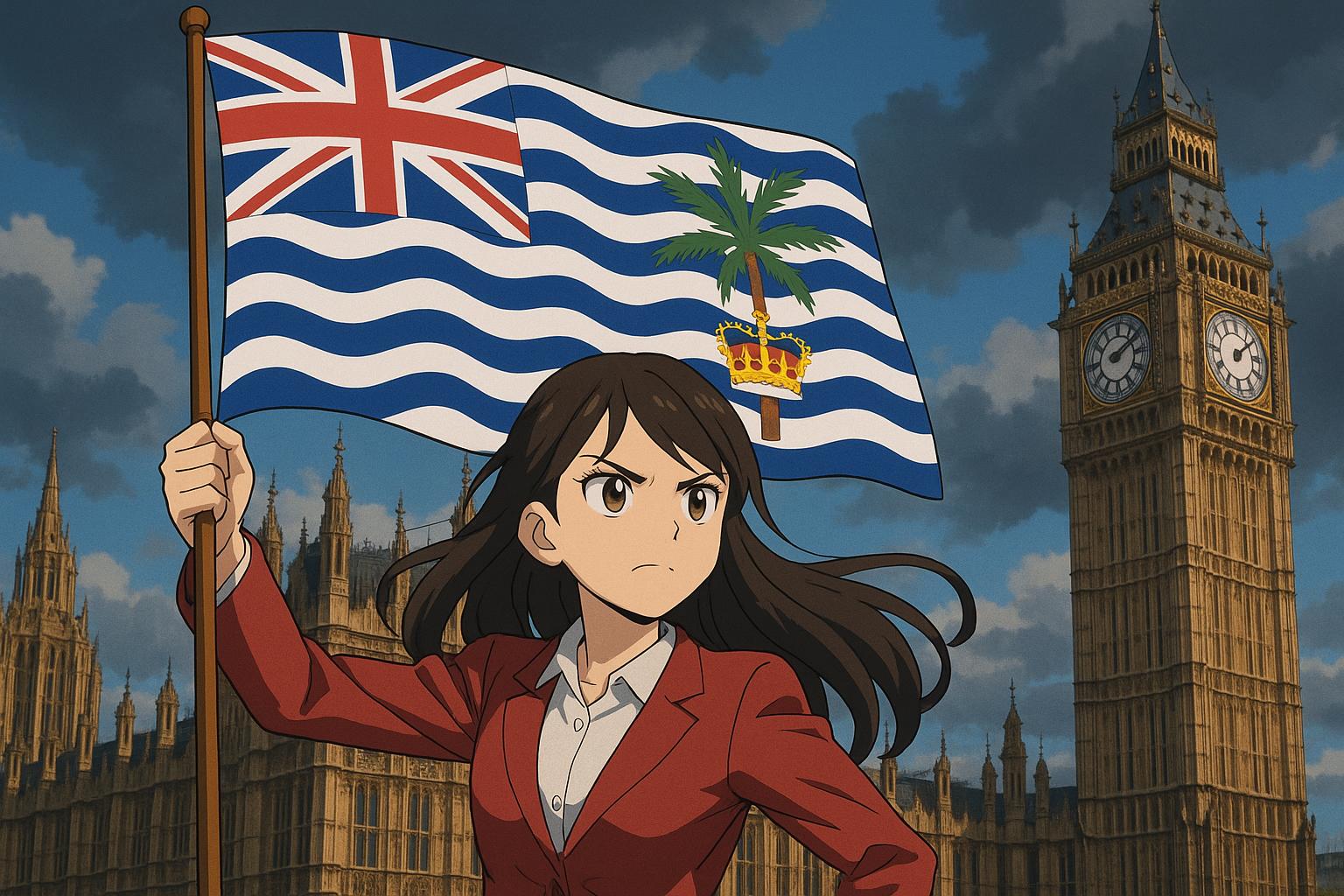Downing Street is currently facing scrutiny over its handling of the Chagos Islands’ sovereignty transfer to Mauritius, with accusations of procrastination driven by fears of backlash from Labour MPs. Since ministerial declarations at the beginning of April indicated that negotiations for the handover were nearing completion, expectations shifted towards a swift resolution. However, recent updates reveal ongoing discussions that suggest a deliberate delay, possibly linked to the estimated £9 billion associated with the deal, which could prove politically perilous amidst the backdrop of Labour’s contentious budgetary cuts.
Sources indicate that government officials are acutely aware of the potential backlash from Conservative and Reform Party factions, who are likely to oppose the notion of relinquishing control over the islands. The sensitivity surrounding this transfer is heightened by its implications for the Diego Garcia military base, pivotal for Anglo-American military operations. A Prime Ministerial spokesman confirmed that efforts to secure a deal concerning the base are still in progress, signalling the complexity of the negotiations involved.
Criticism has also emerged from within the Labour Party itself. Shadow Foreign Secretary Dame Priti Patel accused the leadership of failing to act in the national interest, declaring that “when Labour negotiates, Britain loses.” This internal dissent reflects broader concerns regarding the implications of the handover, particularly in light of the historical context of Chagossian displacement. Between 1968 and 1973, the British government forcibly removed the islands' entire population to facilitate the establishment of the military base, a move that has since drawn widespread condemnation.
In parallel to domestic political manoeuvring, legal challenges are brewing over the proposed deal. Earlier this year, prominent Conservative peers issued a pre-action protocol against the Foreign Office, alleging that the government is unlawfully proposing to cede British territory to a foreign entity. Their claims hinge on the assertion that the government lacks the prerogative power to make such a concession, coupled with concerns over the legality of the financial arrangements tethered to the deal.
Despite the legal posturing, historical precedent suggests that courts generally refrain from intervening in foreign policy matters. This underscores the political minefield that the government finds itself navigating. Sir Michael Ellis, a former attorney-general, has voiced opinions suggesting that the legal foundation underpinning the deal is shaky, raising questions about its long-term viability.
The implications of this proposed treaty extend beyond mere sovereignty. It envisions a framework wherein Mauritius secures control over the archipelago, while the UK retains a long-term lease on Diego Garcia. This strategic arrangement, which includes significant annual payments, aims to preserve vital military interests amid shifting geopolitical dynamics. Yet, the Chagossians, who are estimated to number over 10,000 and are largely dispersed across Mauritius, the Seychelles, and the UK, remain at the heart of this contentious narrative, with many expressing a desire to return to their ancestral homes.
Recent legal actions by two Chagos-born women, Bernadette Dugasse and Bertrice Pompe, reflect the ongoing struggle for recognition and restitution. Their case challenges the UK government's planned transfer, asserting a claim to the islands that resonates deeply within the context of broader decolonisation efforts. Protests by Chagossians outside the UK Parliament have underscored the community's frustration over perceived failures to consult them during negotiations.
As these discussions unfold, the ramifications of the Chagos Islands' handover will likely crucially reflect the UK's colonial past and its continuing influence on international relations. This complex situation not only raises significant ethical questions regarding the treatment of displaced populations but also highlights the ongoing geopolitical challenges faced by the UK as it seeks to navigate a post-Brexit world.
The path forward remains fraught with uncertainty, balancing national interests against historical injustices, as the debate continues over the British government's approach to the Chagos Islands.
Source: Noah Wire Services
